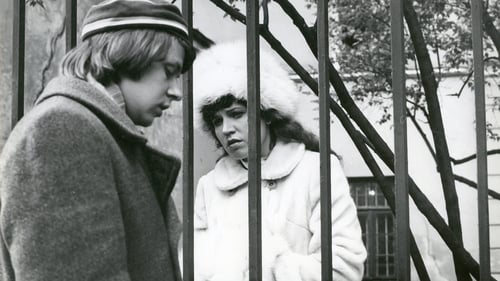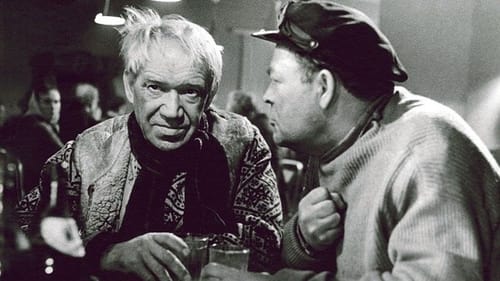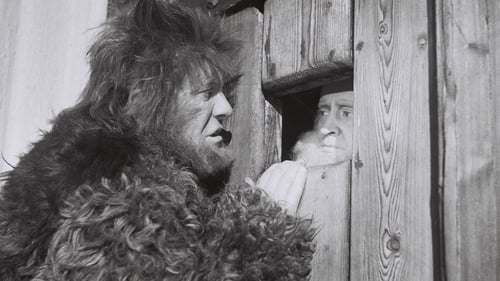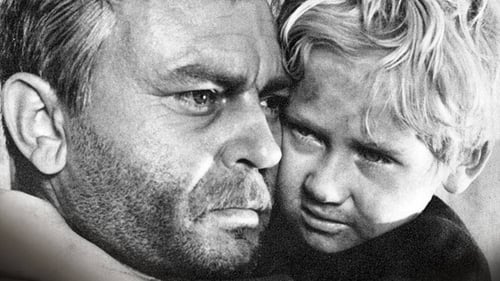Jüri Müür
出生 : 1929-01-07,
死亡 : 1984-11-17
略歴
Jüri Müür (born 7 January 1929, Tartu – 17 November 1984) is an Estonian film director, screenwriter and actor.
In 1960 he graduated from Gerasimov Institute of Cinematography.

Police chief

Director

Writer

Of the deminers combing the landscape, a young man walking without a detector finds himself on a mine. Since his companions cannot help him, the young man wants to dictate his goodbye letter to his wife.

Ollino
Based on the second part of the pentalogy "Truth and Justice" by Anton H. Tammsaare.

Writer
The Estonian Jubilee Song Festival is shown as a source of creativity that influences the creation of a painting. The documentary material is linked to the animation.

Writer
The famous chief of the corsairs Bloody John brings the lovely Isabella back as war booty from yet another foray. The avaricious Isabella shortly seizes power in the gang. Bloody John is reduced to a weak-willed, henpecked subordinate of the female robber. The desperate John escapes and seeks shelter in his dear childhood home in Saaremaa, where he starts earning a living again by honest means.

Director
A documentary about the XVII Estonian song festival, a celebration of 100 years of song festivals. Shown are the lighting ceremony of the song festival fire, the procession, the choirs, singers and the public, including performance of the Mart Saar song Leelo led by Gustav Ernesaks.

Screenplay
The story of the war film is about paths of the Estonian Shooting Corps (formed by the Red Army) during the WW-2 and how the fight forms an usual man to a loyal soldier. Ideologic aspects of the movie are more hidden than in ordinary Soviet war films but they're still existing.

Director
The story of the war film is about paths of the Estonian Shooting Corps (formed by the Red Army) during the WW-2 and how the fight forms an usual man to a loyal soldier. Ideologic aspects of the movie are more hidden than in ordinary Soviet war films but they're still existing.

Chairman of the Collective Farm
Martin Puri is an elderly fisherman who is told to retire because of his old age. When a group of people has to be saved from a boat in an autumn storm, Martin understands that one cannot act against the sea but together with it.

Writer
Martin Puri is an elderly fisherman who is told to retire because of his old age. When a group of people has to be saved from a boat in an autumn storm, Martin understands that one cannot act against the sea but together with it.

Director
Martin Puri is an elderly fisherman who is told to retire because of his old age. When a group of people has to be saved from a boat in an autumn storm, Martin understands that one cannot act against the sea but together with it.

Külvand
It's 1940 - the first summer of the Soviet occupation on the Estonian island Saaremaa. Teenagers stepping in their lives have important decisions to make. Should they support the Soviet regime or join the resistance?

Writer
The way Saint Peter explains it to the Devil who's knocking on Heaven's door to collect his share of souls: there will be no more souls, as God has come to doubt if humans are really meant to achieve salvation. If they aren't then how can they be punished posthumous and sent to Hell? There's only one way to make sure if sinning is the human nature, or is it that they simply don't want to better themselves - Devil himself must go down to Earth, in human form, and if he can achieve salvation then so can a human being... Based on A. H. Tammsaare's classic novel of the same name.

Director
The way Saint Peter explains it to the Devil who's knocking on Heaven's door to collect his share of souls: there will be no more souls, as God has come to doubt if humans are really meant to achieve salvation. If they aren't then how can they be punished posthumous and sent to Hell? There's only one way to make sure if sinning is the human nature, or is it that they simply don't want to better themselves - Devil himself must go down to Earth, in human form, and if he can achieve salvation then so can a human being... Based on A. H. Tammsaare's classic novel of the same name.

Director
After a stormy night on the sea, a group of Estonian fishermen end up in a small coastal Finnish town. As they await the Soviet authorities to take them back home, some of the fishermen contemplate leaving their former lives in a Soviet era Estonia behind.

The story of a man (Andrey Sokolov) whose life was ruthlessly crippled by World War II. His wife and daughters were killed during the bombing of his village, he spent some time as a prisoner, and his only son was killed in action only a few days before the victory...












